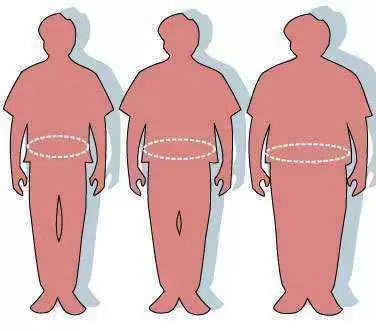
Celiac.com 11/28/2014 - According to a new study, obesity plays a major part in triggering and prolonging autoimmune diseases, such as celiac disease, Crohn's disease and multiple sclerosis.
The study appeared recently in Autoimmunity Reviews by Prof. Yehuda Shoenfeld, the Laura Schwarz-Kipp Chair for Research of Autoimmune Diseases at Tel Aviv University's Sackler Faculty of Medicine and Head of Zabludowicz Center for Autoimmune Diseases at Chaim Sheba Medical Center, Tel Hashomer.
Celiac.com Sponsor (A12):
According to the research, obesity erodes the body's ability to protect itself, triggering a pro-inflammatory environment that promotes the development of autoimmune diseases, hastens their progression, and impairs their treatment.
For some time now, says Professor Shoenfeld, researchers have been aware of the “negative impact of contributing disease factors, such as infections, smoking, pesticide exposure, lack of vitamins, and the like. But in last five years, a new factor has emerged that cannot be ignored: obesity.”
According to the World Health Organization, about one-third of the global population is overweight or obese, nearly a dozen autoimmune diseases are now associated with excess weight, which now impact nearly 5-20% of the global population. That is why, according to Shownfeld, it is “critical to investigate obesity's involvement in the pathology of such diseases."
The main culprit is not fat itself, but adipokines, compounds secreted by fat tissue, which impact numerous physiological functions, including the immune response.
In tandem with their own study, Shoenfeld and his colleagues reviewed 329 studies from across the globe that focused on the connections between obesity, adipokines, and immune-related conditions like rheumatoid arthritis, multiple sclerosis, type-1 diabetes, psoriasis, inflammatory bowel disease, psoriatic arthritis, and Hashimoto thyroiditis.
"According to our study and the clinical and experimental data reviewed, the involvement of adipokines in the pathogenesis of these autoimmune diseases is clear," says Shoenfeld. "We were able to detail the metabolic and immunological activities of the main adipokines featured in the development and prognosis of several immune-related conditions."
One of the team’s more interesting findings was that obesity also promotes vitamin D deficiency, which, “once corrected, alleviated paralysis and kidney deterioration associated with the disorder… [and] improved the prognosis and survival of the mice.”
Source:
- Open Original Shared Link







Recommended Comments
Create an account or sign in to comment
You need to be a member in order to leave a comment
Create an account
Sign up for a new account in our community. It's easy!
Register a new accountSign in
Already have an account? Sign in here.
Sign In Now